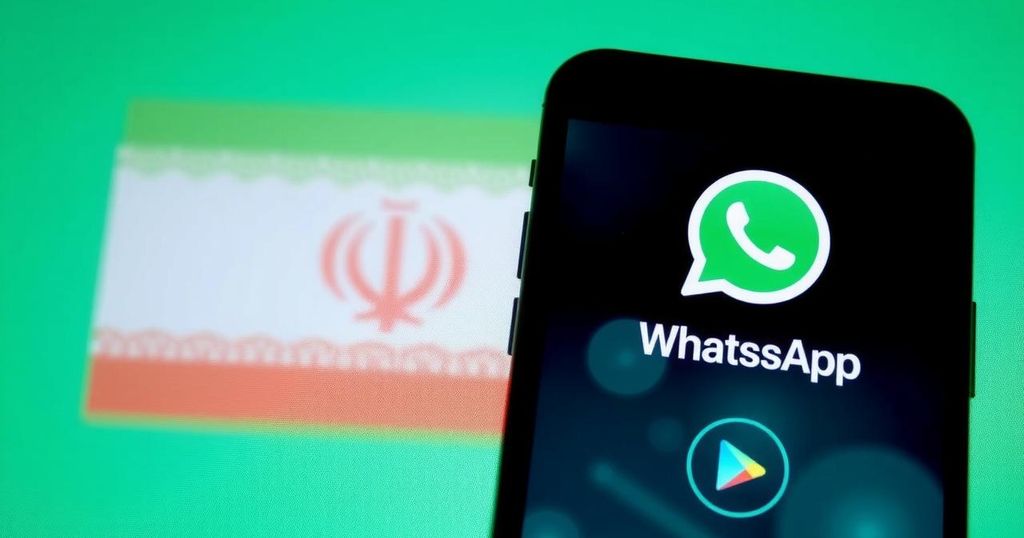Iran has lifted its ban on WhatsApp and Google Play, suggesting a reduction in internet censorship within the country. This development comes shortly after the government paused a controversial hijab law, which sought to impose stricter penalties on women non-compliant with hijab regulations. The actions appear to be linked to ongoing diplomatic considerations amid international sanctions concerning Iran’s nuclear program.
The Iranian government has recently lifted the ban on the messaging platform WhatsApp and the Google Play store, marking a significant shift in its stringent internet policies. This decision was confirmed by state media following a meeting led by President Masoud Pezeshkian. The easing of restrictions comes as tech-savvy citizens have continued to utilize VPNs to access blocked social media platforms, including Facebook, Twitter, and YouTube. Minister of Information and Communications Technology, Sattar Hashemi, stated that this action represents a preliminary step towards increasing access to foreign digital platforms in Iran.
Interestingly, this development follows Iran’s recent decision to pause the enforcement of a new, more rigorous hijab law aimed at increasing penalties for women not adhering to hijab regulations. Announced on December 18, this decision was influenced by ongoing discussions about potential diplomatic negotiations with Western powers regarding economic sanctions related to Iran’s nuclear program. Vice President Shahram Dabiri reported that the parliament would not refer the new law to the government at this time, alleviating the pressure on President Pezeshkian, who would be required to endorse the bill within a short timeframe if it reached his desk.
Iran has historically maintained some of the world’s most stringent internet censorship regulations, employing various measures to control online access. This situation is compounded by ongoing political tensions, particularly concerning the enforcement of laws governing women’s attire, which have led to widespread protests. The backdrop of intensified sanctions from Western nations regarding Iran’s nuclear agenda has also influenced the government’s approach to domestic governance and engagement with citizens.
The recent lifting of bans on WhatsApp and Google Play in Iran signals a possible easing of strict internet controls, a development welcomed by citizens who often circumvent restrictions. Additionally, the halt on the new hijab law highlights the Iranian government’s attempt to balance internal pressures with the need to engage in diplomatic discussions with the West. These actions reflect a complex interplay between governance, civil liberties, and international relations in Iran today.
Original Source: www.hindustantimes.com






